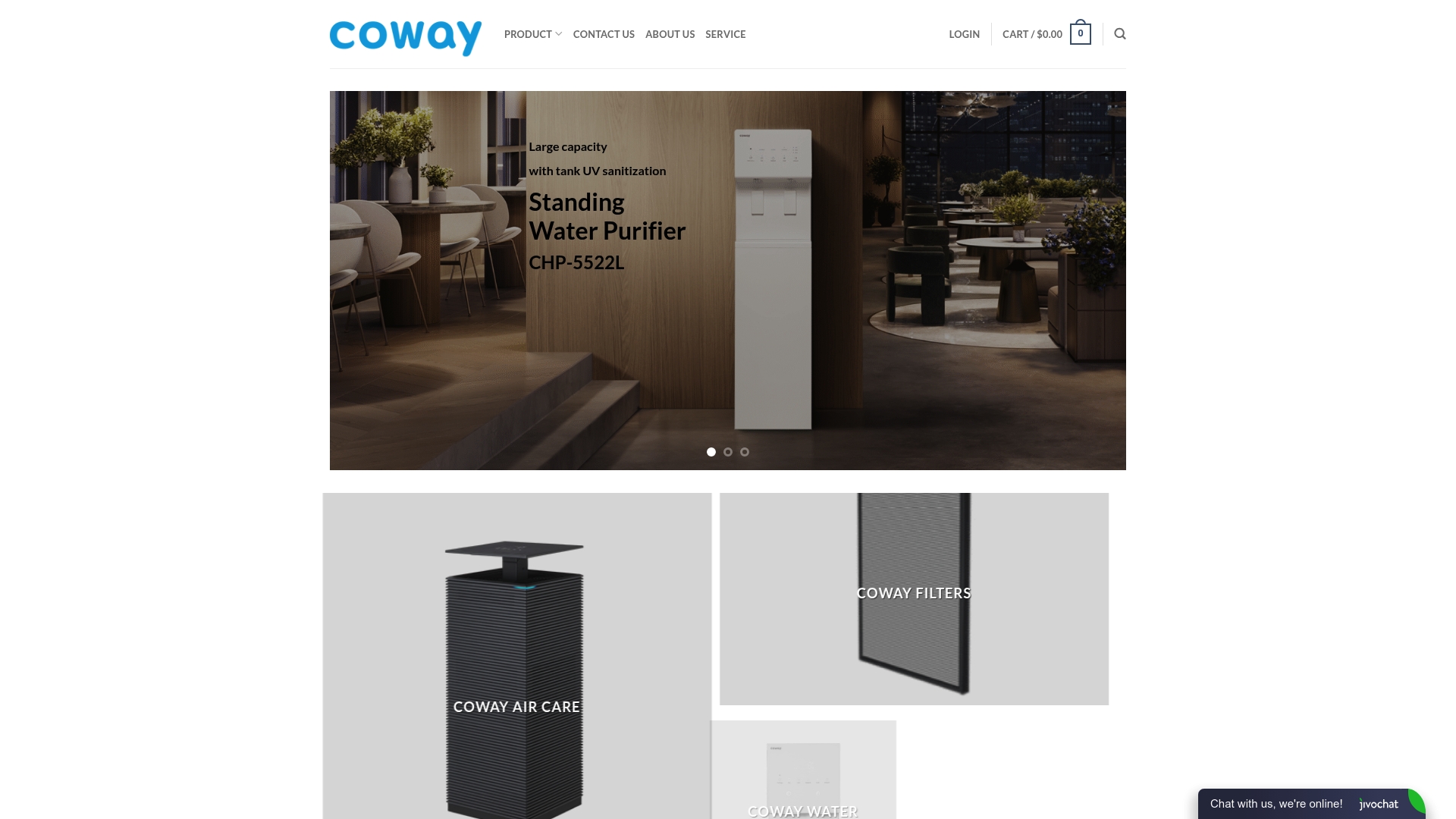Uncategorized
Understanding the Benefits of Filtered Water for Offices
Filtered water is becoming the new gold standard in offices and homes across the US. In a world where we drink and cook with what comes straight from the tap, you might assume modern water supplies are as safe as it gets. But tests show that filtered water is scientifically verified for safety and can remove up to 99 percent of common contaminants. The process is more advanced and transformative than you might expect—and the real surprise is just how much it can impact health, productivity, and even your bottom line.
Table of Contents
- What Is Filtered Water And How Is It Made?
- Why Filtered Water Matters For Office Environments
- How Filtered Water Enhances Employee Health And Productivity
- The Economic And Environmental Benefits Of Filtered Water
- Real-World Examples Of Filtered Water Impact In Offices
Quick Summary
| Takeaway | Explanation |
|---|---|
| Filtered water is safer than tap water. | It undergoes rigorous purification to remove contaminants and harmful substances, providing a cleaner drinking experience. |
| Health impacts productivity in the workplace. | Access to clean, filtered water helps prevent health issues, enhancing employee wellness and overall organizational effectiveness. |
| Hydration boosts cognitive performance. | Drinking adequate amounts of filtered water improves mental clarity, focus, and energy levels among employees. |
| Investing in filtration systems is cost-effective. | Efficient filtration reduces water treatment costs, infrastructure maintenance, and minimizes plastic waste, leading to significant operational savings. |
| Filtered water supports environmental sustainability. | It reduces dependency on bottled water, decreasing plastic pollution, conserving resources, and lowering carbon emissions associated with water transport. |
What is Filtered Water and How is it Made?
Filtered water represents a scientifically purified liquid that undergoes systematic removal of contaminants, impurities, and potentially harmful substances. Unlike tap water, which might contain various microorganisms, chemicals, and particulate matter, filtered water provides a cleaner, safer drinking experience. Learn more about water filtration methods to understand the comprehensive process.
The Science Behind Water Filtration
Water filtration operates through multiple sophisticated mechanisms designed to eliminate unwanted elements. According to the U.S. Environmental Protection Agency, water filtration typically involves several key processes:
- Physical filtration: Removes suspended particles through fine membranes
- Chemical filtration: Neutralizes harmful chemical compounds
- Biological filtration: Eliminates microorganisms and potential pathogens
These processes work synergistically to transform ordinary water into a pure, safe liquid suitable for consumption.
Advanced filtration systems often combine multiple techniques to ensure comprehensive purification.
Filtration Technologies and Techniques
Modern water filtration employs various technologies, each targeting specific contaminants. Activated carbon filters excel at removing chlorine and organic compounds, while reverse osmosis systems can eliminate microscopic impurities. Ceramic filters provide excellent protection against bacteria, and UV purification offers an additional layer of microbiological safety.
The goal of these technologies remains consistent: delivering water that is not just clean, but scientifically verified for safety. By understanding these intricate filtration processes, individuals and organizations can make informed decisions about their water consumption and health.
To clarify the differences between filtration methods described, here is a comparison of common water filtration technologies and the contaminants they target:
| Filtration Technology | Main Target Contaminants | Additional Benefits |
|---|---|---|
| Activated Carbon Filter | Chlorine, Organic Compounds | Improves taste and odor |
| Reverse Osmosis | Microscopic impurities, Dissolved solids | Removes heavy metals |
| Ceramic Filter | Bacteria, Suspended Particles | Long-lasting and reusable |
| UV Purification | Microorganisms (viruses, bacteria) | Chemical-free disinfection |
| Chemical Filtration | Harmful Chemical Compounds | Neutralizes industrial residues |
Why Filtered Water Matters for Office Environments
In professional workplace settings, water quality directly impacts employee health, productivity, and overall organizational wellness. Learn more about comprehensive office water solutions to understand the critical role of water filtration.
Health and Productivity Implications
Clean water is not merely a luxury but a fundamental requirement for maintaining workplace wellness. According to the National Institutes of Health, proper water filtration helps prevent potential health risks associated with contaminated water sources. Unfiltered water can contain numerous harmful elements:
- Microorganisms that potentially cause waterborne illnesses
- Heavy metals like lead and mercury
- Chemical residues from industrial processes
- Chlorine and other treatment chemicals
By investing in high-quality water filtration systems, organizations demonstrate a commitment to employee well-being and create an environment that supports optimal health and performance.

Economic and Professional Benefits
Beyond health considerations, filtered water offers significant professional advantages. Employees who have access to clean, great-tasting water are more likely to stay hydrated, which directly correlates with enhanced cognitive function, increased energy levels, and improved concentration. Hydration is a critical factor in maintaining workplace productivity.
Moreover, organizations that prioritize water quality signal a progressive approach to employee care. This investment can improve workplace morale, reduce potential health-related absenteeism, and create a positive organizational culture that values employee wellness.
How Filtered Water Enhances Employee Health and Productivity
Filtered water represents more than a simple workplace amenity. It serves as a strategic investment in employee wellness and organizational performance. Explore the role of advanced filtration technology to understand its comprehensive impact.
Physiological Benefits of Proper Hydration
According to research from the Sustainable Living Association, proper hydration delivers profound physiological advantages that directly influence workplace performance. Drinking clean, filtered water supports critical bodily functions:
- Lubricates joints and muscles
- Regulates body temperature
- Supports cognitive function
- Enhances immune system response
- Improves metabolic processes
Consistent hydration acts as a fundamental mechanism for maintaining optimal physical and mental performance in professional environments.
 Employees who remain adequately hydrated experience fewer energy fluctuations and maintain higher concentration levels throughout their workday.
Employees who remain adequately hydrated experience fewer energy fluctuations and maintain higher concentration levels throughout their workday.
Cognitive and Performance Implications
Beyond physical health, filtered water plays a significant role in cognitive performance. Clean water consumption directly correlates with improved mental clarity, reduced fatigue, and enhanced decision making capabilities. When employees have access to high quality water, they demonstrate:
- Increased alertness
- Better memory retention
- Improved problem solving skills
- More stable emotional regulation
By prioritizing water quality, organizations create an environment that supports comprehensive employee wellness, transforming hydration from a basic need into a strategic performance enhancement tool.
Below is a summary table outlining the key health and productivity benefits of filtered water in the workplace, as described in the article:
| Benefit Category | Example Effect in Workplace | Source Mentioned |
|---|---|---|
| Physical Health | Reduces waterborne illness risk | Environmental Protection Agency, National Institutes of Health |
| Hydration | Lubricates joints, regulates body temperature | Sustainable Living Association |
| Cognitive Performance | Boosts clarity, memory, and decision making | Article text, Cognitive & Performance Implications section |
| Workplace Engagement | Improves morale and satisfaction | Health and Productivity Case Studies |
| Economic Impact | Lowers absenteeism, increases productivity | Economic and Professional Benefits section |
The Economic and Environmental Benefits of Filtered Water
Filtered water systems transcend traditional hydration solutions, offering significant economic and environmental advantages for organizations. Learn more about investing in water purification to understand their comprehensive impact.
Cost Efficiency and Sustainability
According to the U.S. Environmental Protection Agency, water and wastewater systems represent critical opportunities for energy and cost optimization. Implementing efficient filtration strategies can yield substantial financial and environmental benefits:
- Reduced long term infrastructure maintenance costs
- Decreased energy consumption in water treatment processes
- Minimized plastic waste from single use water bottles
- Lower overall water treatment and distribution expenses
Strategic water filtration investments can generate significant economic returns while simultaneously reducing an organization’s environmental footprint.
Environmental Impact and Resource Conservation
Beyond direct financial considerations, filtered water systems contribute meaningfully to broader environmental sustainability goals. By eliminating the need for bottled water and reducing water waste, organizations can:
- Decrease plastic pollution
- Conserve natural water resources
- Reduce carbon emissions associated with water transportation
- Minimize chemical treatment requirements
These systems represent a proactive approach to corporate environmental responsibility, demonstrating a commitment to sustainable practices that extend far beyond immediate operational concerns. Organizations that prioritize filtered water solutions position themselves as forward thinking entities dedicated to both economic efficiency and ecological stewardship.
Real-World Examples of Filtered Water Impact in Offices
Filtered water solutions have transformed workplace environments across various industries, demonstrating tangible benefits beyond simple hydration. Discover how water dispensers can revolutionize office wellness to understand their practical applications.
Sustainable Corporate Water Management
According to the U.S. Environmental Protection Agency, innovative water management strategies can generate substantial organizational benefits. Government and private sector case studies reveal remarkable achievements in water conservation and quality:
- The Ralph H. Metcalfe Federal Building in Chicago saved over 150,000 gallons of water annually
- Large technology companies have implemented comprehensive water recycling systems
- Manufacturing facilities have reduced water consumption by up to 80% through strategic filtration
Successful water filtration implementations demonstrate that environmental responsibility can directly align with operational efficiency.
Health and Productivity Case Studies
Companies implementing advanced water filtration systems have observed significant improvements in employee wellness and workplace performance. Organizations across multiple sectors have reported:
- Reduced employee sick days related to waterborne illness
- Enhanced cognitive performance through consistent hydration
- Improved workplace satisfaction and employee engagement
- Lower healthcare costs associated with preventative wellness strategies
These real world examples underscore the transformative potential of strategic water filtration investments, proving that clean water is not just a basic necessity but a critical component of modern workplace management.
Experience Pure Wellness in Your Office with Coway Water Solutions
Are you tired of worrying about the contaminants and chemicals in your office drinking water? The article “Understanding the Benefits of Filtered Water for Offices” highlights the serious impact that poor water quality can have on employee health and productivity. You should not have to choose between convenience and safety at work. Give your team the proven health advantages discussed in the article with world-class filtration technology designed specifically for office environments. Discover more in our Uncategorized Archives for extra knowledge on workplace water solutions.

Act now to upgrade your office with a Coway water purifier. Our selection features countertop, under-sink, and large-capacity models—all focused on advanced filtration, UV sanitization, and ongoing maintenance so you never have to worry about water quality again. Visit https://cowayswaterpurifier.com to find the perfect fit for your workspace and boost your team’s well-being today.
Frequently Asked Questions
What is filtered water and how is it different from tap water?
Filtered water is water that has undergone a purification process to remove contaminants, impurities, and harmful substances. Unlike tap water, which may contain microorganisms and chemicals, filtered water provides a safer and purer drinking experience.
How does water filtration contribute to employee health?
Water filtration helps prevent health risks associated with contaminated water, such as waterborne illnesses and exposure to harmful chemicals. Access to clean, filtered water promotes hydration, which is essential for maintaining physical and cognitive function in the workplace.
What are the benefits of using advanced filtration systems in an office environment?
Advanced filtration systems provide high-quality water that supports employee hydration, leading to enhanced cognitive performance, energy levels, and overall workplace productivity. These systems also demonstrate an organization’s commitment to employee wellness and environmental sustainability.
How can filtered water systems lead to cost savings for organizations?
Filtered water systems can reduce long-term infrastructure maintenance costs and energy consumption associated with water treatment. Additionally, they minimize plastic waste from bottled water and lower overall water treatment expenses, contributing to significant economic returns and a reduced environmental footprint.
Recommended
- Complete Office Water Purification Guide for Healthier Spaces – Coway Water Purifier
- What is Water Filtration? Understanding Its Importance – Coway Water Purifier
- What is a Water Dispenser? Understanding Its Functionality – Coway Water Purifier
- Why Invest in Water Purifiers: Understanding Benefits – Coway Water Purifier

